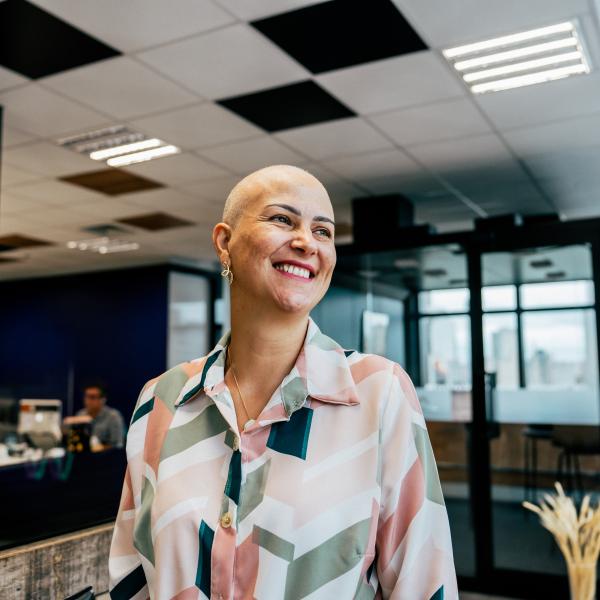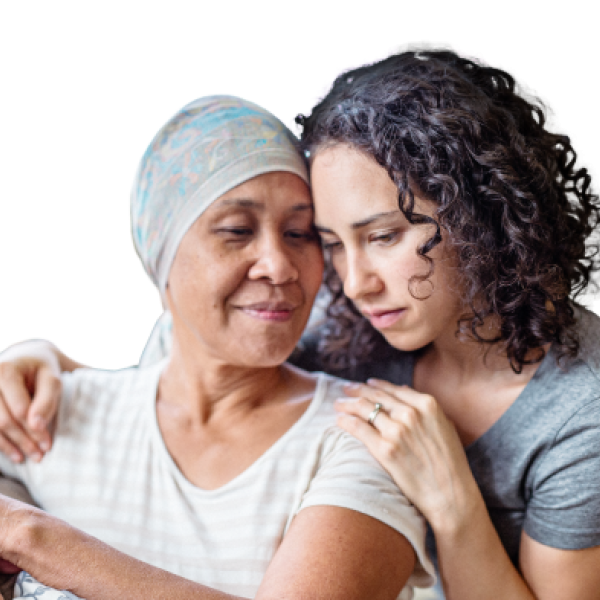Understanding cancer care
Oncology in America faces a complex landscape. While significant progress has been made in cancer detection and treatment, several ongoing challenges persist. Learn key insights, trends and strategies to help improve cancer outcomes and experiences for your members.

Defining cancer
“Cancer” refers to the growth of abnormal cells which are determined as malignant—or harmful—impeding the normal function of the area of the body it grows in. Malignancy can be identified via biopsy, imaging or other testing, and the sooner it is detected, the better.
Detecting, accurately diagnosing and effectively treating cancer is incredibly complex as it is more than just one disease—it’s thousands of increasingly individualized diseases, each with different causes, symptoms and guidelines for care.
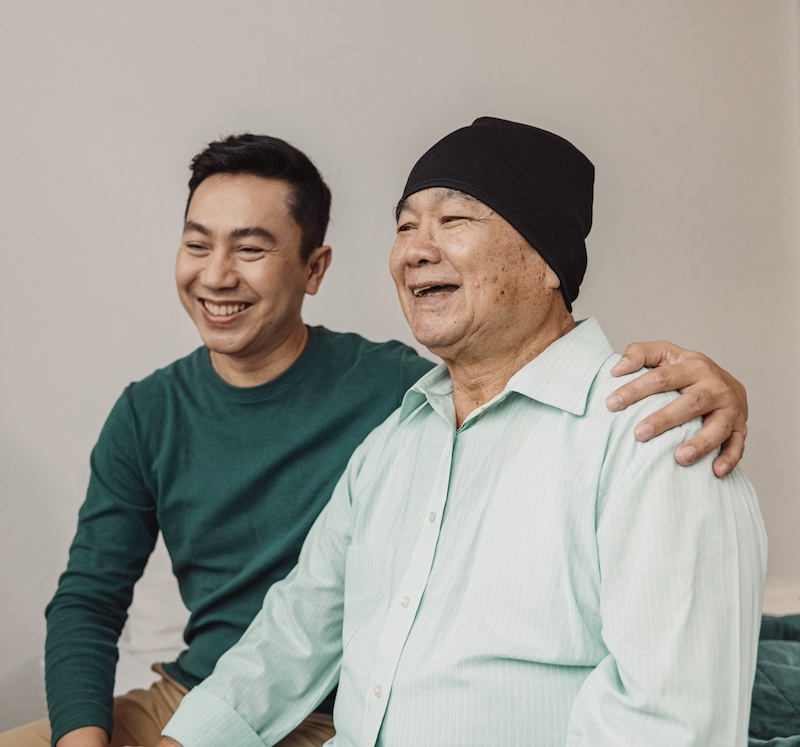
Challenges in cancer care
For millions of Americans, a cancer diagnosis marks the beginning of a long, complex and uncertain journey. Whether you are a patient, a caregiver or a loved one, navigating today’s fragmented oncology landscape can be frustrating and bring a mix of overwhelming emotions on top of the physical burden of treatment.
When facing this difficult cancer journey, patients often experience very little guidance, support or resources. The role of providers, payers and benefits managers is to help relieve this burden and make the cancer journey easier to bear.
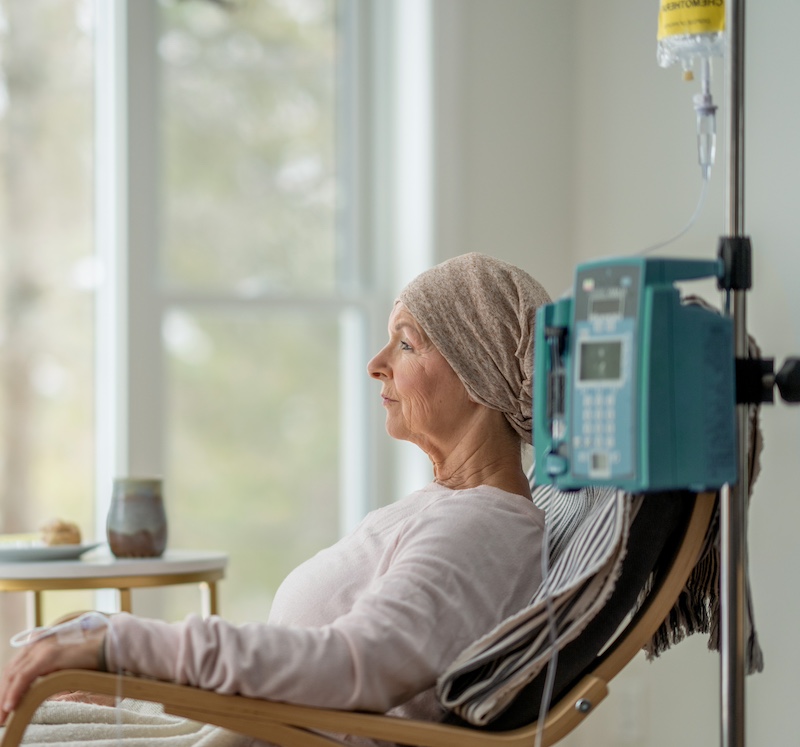
Cancer and behavioral health care go hand in hand
When patients and caregivers struggle with unmet behavioral health needs, it can lead to higher costs and worse outcomes overall. If cancer caregivers neglect their own needs, their behavioral health can suffer.
Patients and plans struggle with rising costs
Cancer isn’t just complex, it’s also expensive. The financial cost of care can be a significant burden on patients and their families, causing additional distress as they navigate the path to better health. By 2030, the cost of cancer-related medical services and prescription drugs in the U.S. is expected to reach $246B—a 30% increase since 2015—and it shows no signs of slowing down.3
64%
of cancer patients report feeling unprepared for the cost of their care4
86%
of employers say cancer is among their top three drivers of health care costs5
Innovation in therapy and diagnosis in the last decade is one of the top drivers of rising cancer spend.
While new breakthrough therapies—such as immune checkpoint inhibitors (ICIs)—show great promise in improving patient outcomes, they have also increased spend by billions of dollars since their launch. To help manage these costs, Evernorth is committed to helping plans optimize utilization of these expensive therapies and ensuring patients get the right level of care for their needs.
Read our recent report, Real-World Data in Cancer Care, to learn more.


New trends raise new concerns
2M+
new cancer cases projected in 2024 for the first time ever6
#1
cause of cancer deaths in men under 50 is colorectal cancer, and the #2 cause in women6
6
of the 10 most common cancers are seeing a rise in cases (endometrial, liver, kidney, pancreas, colorectal and breast)6
Importance of treatment from the right doctors
Many patients’ outcomes could be greatly improved by ensuring they receive the right tests and evidence-based care that meets the latest cancer guidelines.
For example, our data shows that up to 1 in 3 non-small cell lung cancer patients do not receive recommended testing after diagnosis to determine the most appropriate treatment.7 If more patients receive the recommended testing, it can lead to dramatically improved survival rates.
In addition, we know that cervical cancers are almost entirely preventable with timely screenings, and yet women in areas of high social need are consistently screened at lower rates than those in areas of low social need. As a result, these women are more likely to die from cervical cancer. With more proactive interventions and case review from oncology experts, these trends can be reversed.
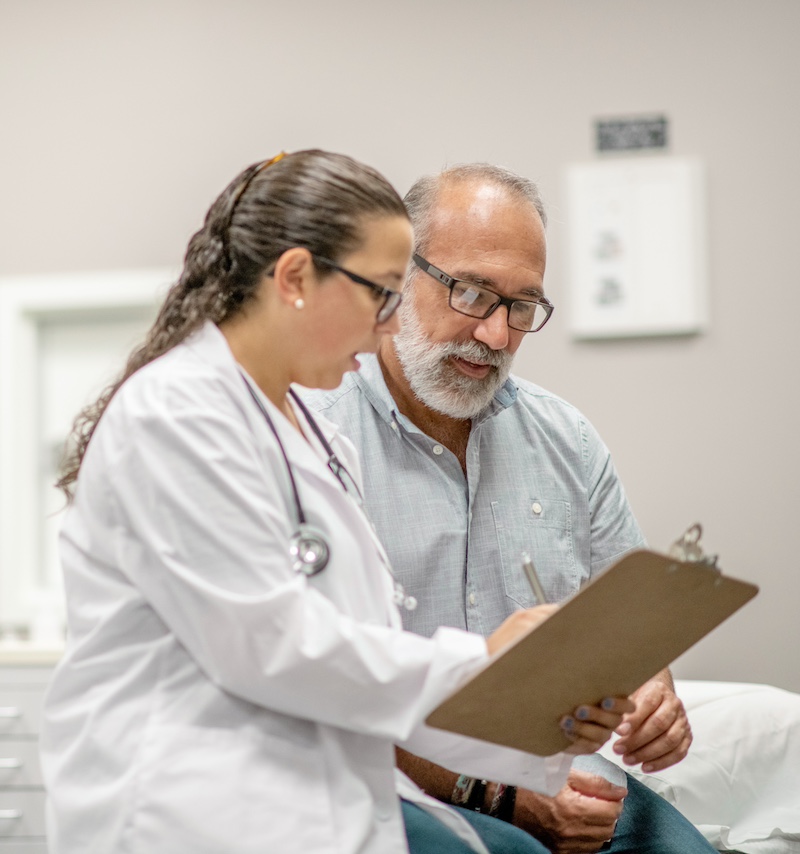
By the numbers
Disparities and gaps in care are often attributed to social factors which impact access to quality, personalized care.
2x
higher death rate for African Americans with prostate, stomach and uterine cancers, compared to white Americans6
35%
higher cervical cancer rates in Hispanic women vs. non-Hispanic white women6
47%
of patients living in areas of high social need, as determined by the Evernorth Social Determinants Index (ESDI), do not receive care at a National Cancer Institute-affiliated center
No one’s health should suffer from preventable gaps in care
Learn more about health equity and what Evernorth is doing to make the health care system work better for everyone.
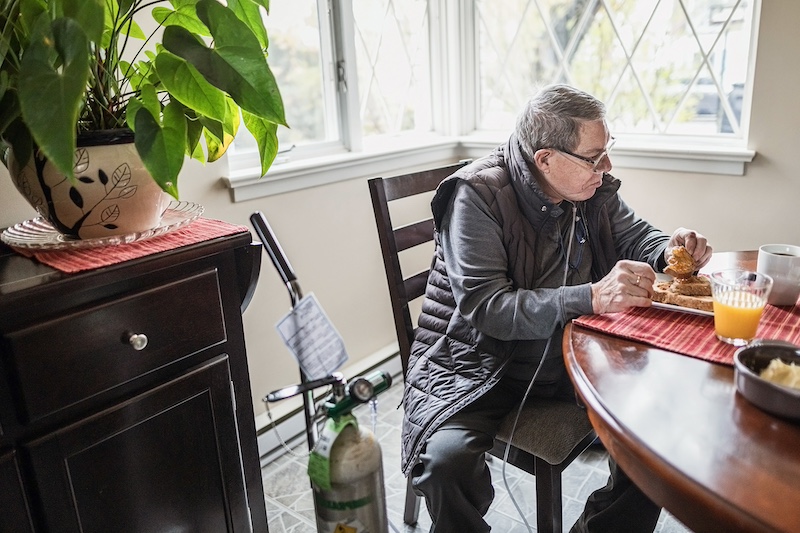
Completing cancer care. Every way. Every day. Every one.
It would be nice if cancer care came down to a single decision—a single comprehensive solution—that provides everything needed for both plans and patients.
Evernorth Oncology Benefit Services is a premier end-to-end cancer care solution supporting employees and caregivers across the entire cancer journey in a single experience—closing the loop on what’s been missing in cancer care.
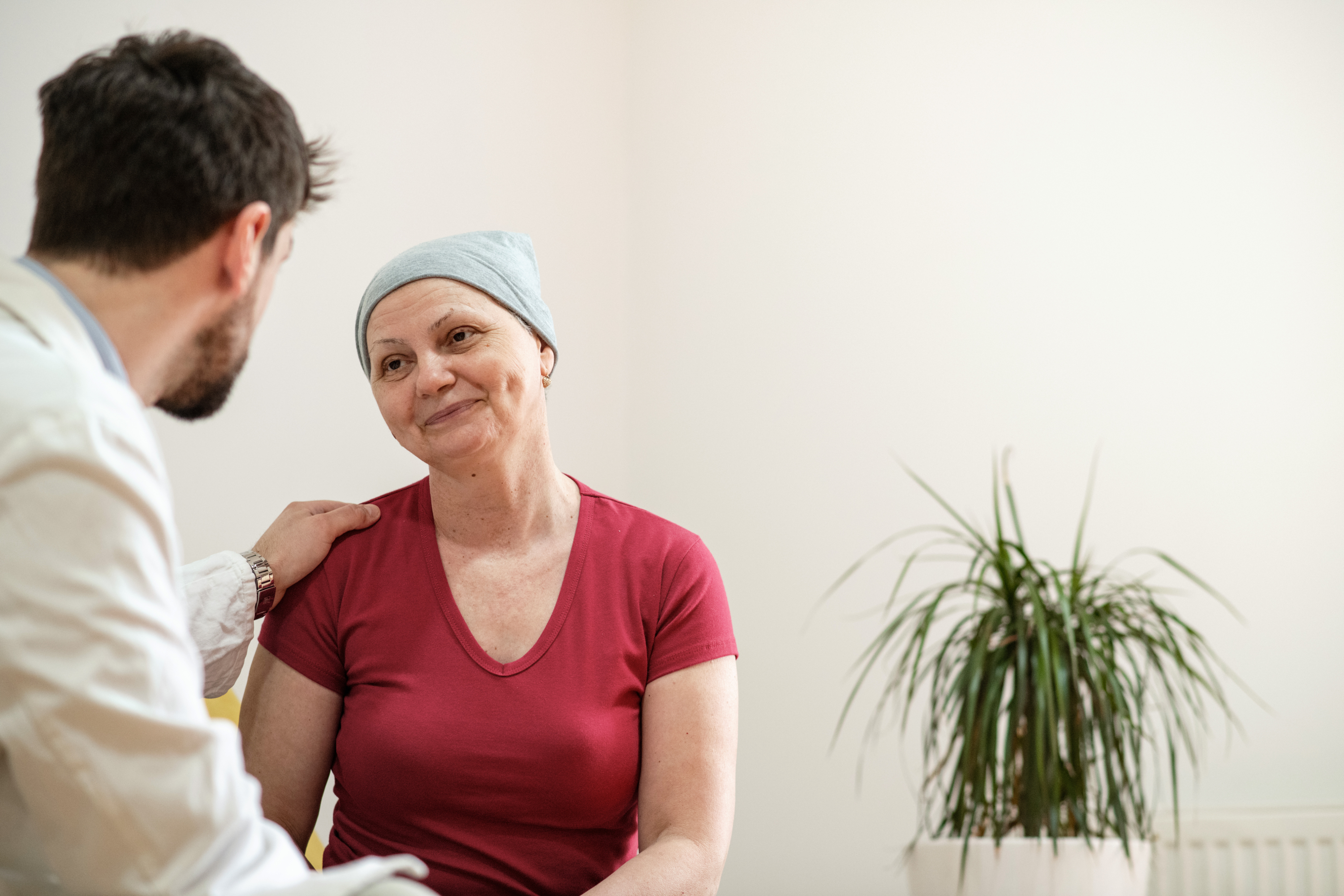
Sources
- American Cancer Society, “What is Cancer?”, 2022.
- Evernorth Research Institute, Health Care in Focus, 2024.
- Mariotto AB, Enewold L, Zhao J, Zeruto CA, Yabroff KR. “Medical Care Costs Associated with Cancer Survivorship in the United States.” Cancer Epidemiol Biomarkers Prev. 2020.
- American Cancer Society Cancer Action Network. Survivor Views: Cancer & Medical Debt, March 2022.
- Business Group on Health. 2024 Large Employers Health Care Strategy Survey.
- American Cancer Society. Cancer Facts & Figures 2024. Atlanta: American Cancer Society, 2024.
- Evernorth Research Institute. Real-World Data in Cancer Care, Improving Care Series, 2023.
